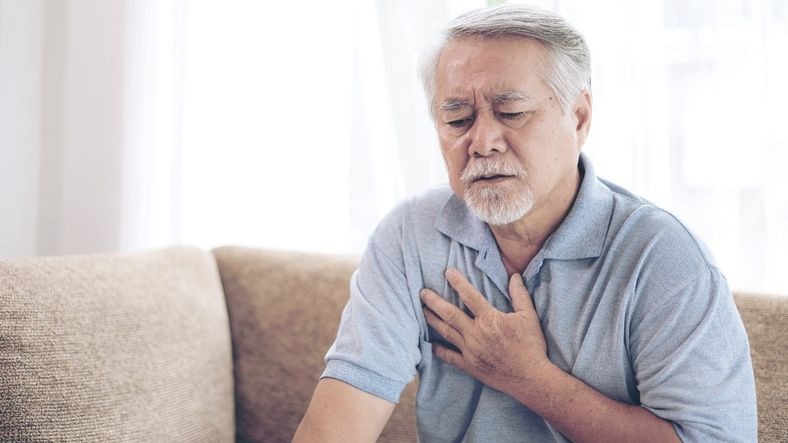Breathing problem after stopping smoking: the solutions?
Caution : You must consult your doctor for your health. This page presents only a personal and alternative point of view which should not be considered as an attempt to prescribe medicine.
Quitting smoking can be difficult.
It is a big effort which contributes to your well-being since you gradually get rid of the harmful products contained in cigarettes.
Although the purpose of this cessation is to improve the functioning of your body, the journey can be difficult.

Indeed, among the post-smoking symptoms, there are breathing problems.
Here are some solutions that will allow you to face it serenely.
Good hydration
A few days after stopping smoking, you may feel the effects on your body.
The symptoms are such that breathing is obstructed or even impossible.
These breathing problems arise because your respiratory system is withdrawing and lacking in nicotine.
Your body is struggling to get back to normal functioning.
In these cases, mineral water can provide relief while rehydrating your body.
The consumption of water contributes to the elimination of the remainder of nicotine contained in the body.
Likewise, good hydration can also be a substitute for your cigarette.
This helps cleanse the lungs more quickly, especially if you add a pinch of salt to make your water more mineral.
Thus, it is recommended to drink as soon as you are thirsty (without forcing yourself either).
This will allow you to have a better hygiene of life in the long term and relieve the side effects due to the regular consumption of tobacco.
Breathing exercises
During the process of quitting smoking, your body will be in pain.
It is therefore essential to adopt simple daily actions to avoid a relapse.
Breathing exercises are a kind of rehabilitation to find the best post-stop breathing reflexes.
So you can take a deep breath to fill the lungs.
The principle is to take a deep breath to draw in a consistent amount of oxygen.
Then, you will have to breathe out very slowly, as long as possible.
The exercise should be repeated for at least 20 minutes per week.
These exercises allow you to store as much air as possible in the lungs and to exercise the rib cage at the same time.
But above all, exhaling twice as slowly as possible above all increases your CO2 level, which will be very beneficial for stopping smoking.
Regular practice improves the way you breathe while you relax.
It will also restore your heart rate and have a positive impact on your nervous system.
It is also an effective way to limit the stress that arises when you quit smoking.
A regular sport activity
Practicing a sports activity treats many ailments of the human body.
This allows you to quickly regain your breath after smoking cessation.
Sport helps to get rid of toxins and free the airways.
Thus, we recommend that you go for a walk at least 5 times a week and especially at your own pace.
In addition, after stopping smoking, weight gain is often unavoidable because you compensate for your addiction by eating.
This rapid weight gain can have an impact on the heart.
By playing sports, the risk of having a heart attack or having a heart attack can be considerably reduced.
Your body is less sensitive to certain attacks and your immune defenses are strengthened.
After a few weeks, the bronchi will be less and less congested.
It should be noted that regardless of the physical activity chosen, the important thing is not to stay still throughout the day.
It is the sedentary lifestyle that kills!
Corticosteroid therapy or oxygen therapy for severe cases
Tobacco smoke causes great damage to the smoker's organism.
Thus, after smoking cessation, medication may be considered to correct breathing problems.
Many smokers often suffer from chronic obstructive pulmonary disease or BCPO.
This pathology reduces breathing capacity, while causing shortness of breath and a persistent cough.
The treatment of a BCPO can be done by corticosteroid therapy or oxygen therapy.
Corticosteroid therapy simply involves inhaling or injecting cortisone-based drugs.
This component is used as an anti-inflammatory in diseases of the respiratory tract.
Oxygen therapy involves treating the patient by administering additional amounts of oxygen.
It is recommended for patients who require oxygenation of their blood.
Thus, an amount of oxygen is administered to the latter for at least 15 hours per day.
NOTE: this last chapter is for information only, because I strongly recommend that you improve your lifestyle (breathing, eating, walking, etc.) before resorting to this type of heavy treatment and often with many side effects.
❤ The ultimate guide to breathing
Intermittent Breathing : Discover the method to quickly relieve your anxiety and chronic fatigue (positive effects from the first use).Read also :
Previous article : Why do we breathe harder at night?
Next article : Anxiety attack and breathing problem: what to do?

